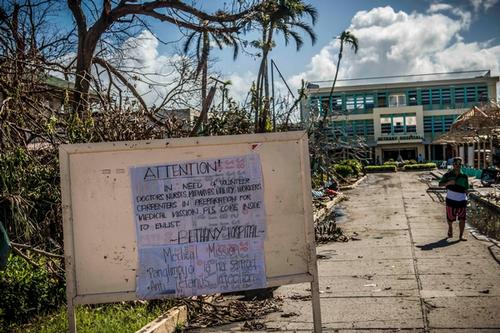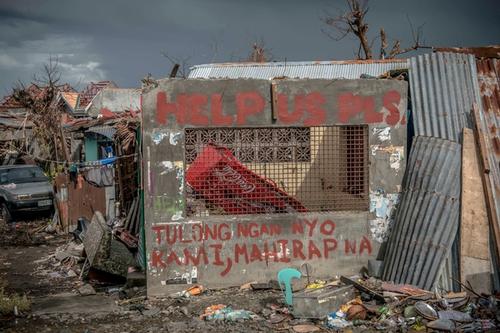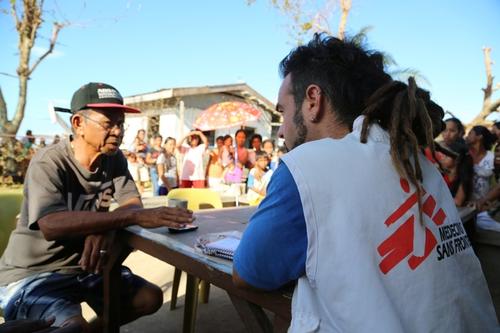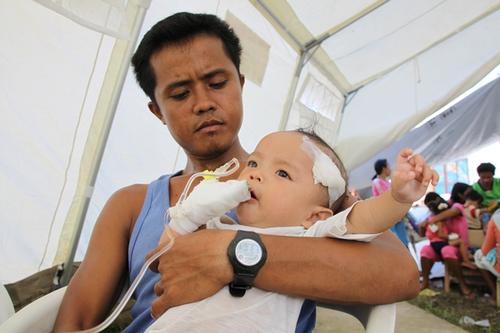Developed specifically for natural disasters, Médecins Sans Frontières' (MSF) inflatable hospital is a temporary structure in which its teams will provide secondary healthcare and surgical care in the typhoon-hit city of Tacloban over the next three to six months while the local healthcare system is rebuilt.
A team from the international medical organisation MSF is putting the finishing touches to an inflatable hospital set up in the compound of Bethany hospital, on the damaged seafront of Tacloban, the Philippines city hardest hit by Typhoon Haiyan.
Consisting of four inflatable tents with an area of 100 square metres each, and a fifth tent of 45 square metres, the hospital will contain an emergency room, a woundcare room, a pharmacy and up to 45 hospital beds. Additional care will be provided within Bethany hospital once repairs have been completed to the damaged surgical ward, maternity ward, neonatal unit and the unit for sterilising equipment.
'A titanic task'
“Alongside Filipino and international volunteers, we worked hard all night, in the pouring rain, so that the hospital would be in place this morning,” says Yann Libessart of MSF’s emergency team in Tacloban. “Getting the site ready and installing the hospital was a major logistical challenge. First we had to clear the courtyard and outdoor areas of the hospital – it was a titanic task.”
MSF’s medical teams based in the inflatable hospital also aim to support the few hospitals in Tacloban that are still functioning, and to take over some of the work of the first rescue teams to arrive on the scene, including soldiers, who are now starting to leave the city.
“The first phase of the emergency is now over,” says Laurent Sury, MSF emergency coordinator, “and we expect mainly to be treating patients with common diseases or conditions related to poor access to healthcare, such as women with complicated deliveries and people with chronic illnesses. Our goal is to support the health system in the region for the time it takes to return to normality."
Developed for natural disasters
MSF’s standalone inflatable hospital was developed with the specific purpose of helping its emergency teams respond quickly to natural disasters, enabling them to provide people with quality healthcare while damaged health facilities are being reconstructed or repaired.
The inflatable hospital was used following the 2005 earthquake in Pakistan and the earthquake in Haiti in 2010.
MSF currently has 192 international staff working in the Philippines to provide healthcare and humanitarian aid in a dozen towns and villages on the islands of Leyte, Samar and Panay, the three islands hardest hit by the 8 November typhoon.






